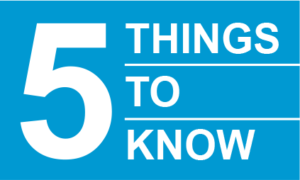The month of September marks two important occasions meant to recognize important needs in our community.
The first — Hunger Awareness Month/Hunger Action Month — is designed to draw attention to the fact that food insecurity is greater than ever. Throughout the country, millions of Americans are being forced to make budgeting decisions while facing grocery prices that have risen more than 13% in the last 12 months, the largest increase since 1979.
It’s no different in our region. In Imperial County, prior to the pandemic, almost one in five people experienced food insecurity, according to the Imperial Valley Wellness Foundation. The San Diego Hunger Coalition estimated that in 2021, approximately one in three San Diegans experienced nutrition insecurity. We know the need is even greater with the significant volume of community members being served by food banks.
Because food insecurity is often linked to negative health outcomes, hospitals are an ideal place to connect food insecure patients to resources and services such as CalFresh. Integrating screening and food assistance into health care settings can help ensure every eligible resident in San Diego and Imperial Counties has enough to eat — patients are more likely to sign up for food assistance when it is seen as part of their patient care plan. Hospitals in our region have been providing this assistance for several years, helping thousands of patients apply for CalFresh.
September is also Suicide Prevention Awareness Month — a time to raise awareness of this stigmatized, and often taboo, topic. This month is a great time to help shift public perception, spread hope, and share vital information with people affected by suicide. The National Alliance on Mental Illness is using this month to highlight the “Together for Mental Health” campaign, which encourages people to unite as advocates for better mental health care, including an effective crisis response system. Within the month is Suicide Prevention Week — Sept. 4-10 — and the Know the Signs campaign has released a toolkit that provides effective ways and tools to promote suicide prevention across California communities.
Every day, your hospitals care for an increasing number of individuals living with a serious mental illness, and they embrace the essential role they play in helping to address crises. Youth, in particular, are heavily influenced by content they find online and on social media that normalizes suicide as an option for those who are having mental and behavioral health challenges. And, after years of being on the front lines of the pandemic, many of your health care workers are finding themselves in need of mental health resources. It’s imperative that we address this issue.
To assist members, the Hospital Quality Institute, in partnership with BETA Healthcare Group, has developed Care for the Caregiver, an online course that provides first aid for the head and heart — not only for clinical workers but anyone working in health care. This program recognizes that the importance of talking to someone who understands health care workers’ unique situations; it’s psychological first aid for those enduring every day the worldwide war with COVID-19.
Look for more on food insecurity and mental health in our region in the Sept. 21 Biweekly Briefing, which will include more details and findings from the 2022 Community Health Needs Assessment.

